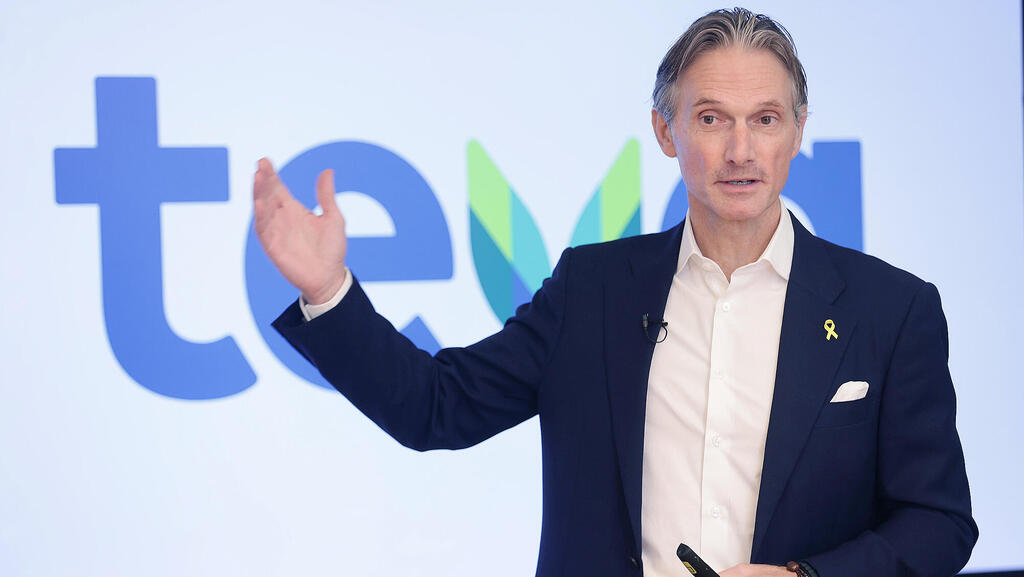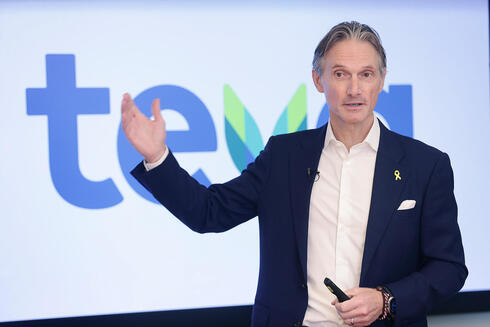
Teva shares jump as its most promising drug shows exceptional trial results
Duvakitug, designed to treat colitis and Crohn’s disease, exceeded expectations and positions Teva to compete in the $28 billion global market for inflammatory bowel disease treatments.
Teva Pharmaceuticals, in partnership with Sanofi, has announced promising Phase 2 trial results for its drug duvakitug, designed to treat colitis and Crohn’s disease. The drug exceeded expectations, showing significant efficacy compared to the placebo, positioning Teva to compete in the $28 billion global market for inflammatory bowel disease treatments. Teva shares surged more than 15% in pre-market trading following the announcement.
In the 14-week phase 2b study by Sanofi and Teva's U.S. affiliate held in the U.S., Europe and Israel, the druע showed that 36.2% of low dose and 47.8% of high dose patients achieved clinical remission compared with 20.45% on a placebo.
The companies said the treatment was consistent across subgroups and that this was the first and only randomized, placebo-controlled study to evaluate the impact of a TL1A antibody in Crohn's disease.
A significant portion of the 58% rise in Teva’s stock price since the start of the year has been driven by expectations of positive results from this trial. Duvakitug is currently considered the most promising drug in Teva’s development pipeline, targeting the massive $28 billion market for autoimmune intestinal diseases. However, it faces competition from other leading contenders in clinical trials aimed at treating inflammatory bowel diseases such as ulcerative colitis and Crohn’s.
With Sanofi as its partner, Teva now competes against pharmaceutical giants Roche and Merck, both of which recently reported strong results in their respective Phase 2 trials. Globally, an estimated 10 million people suffer from inflammatory bowel diseases, and many remain untreated, experiencing chronic inflammation.
While other drugs with a similar mechanism are also in development, Teva believes its specific mode of action offers a competitive edge.
Teva entered into a co-development agreement with Sanofi about a year ago. Under the terms of the deal, Sanofi paid Teva $500 million upfront, with additional milestone-based payments of up to $1 billion. Teva will receive $600 million upon entering Phase 3 trials and another $400 million upon the drug’s commercial launch. Development costs will be equally shared by both companies.
This is a long-term endeavor: Phase 3 trials are not expected to begin before 2025, and the commercial launch of the drug is projected towards the end of the decade. If clinical trials are successful and the drug receives FDA approval, Teva and Sanofi will split the profits equally. Teva will be responsible for the drug’s launch in Europe and Israel, while Sanofi will manage its commercialization in the U.S., Asia, and other global markets.
Related articles:
“The results from the ... study have exceeded our expectations," said Eric Hughes, head of global R&D and chief medical officer at Teva.
Detailed results are expected to be presented at a scientific forum in 2025.
Teva and Sanofi said duvakitug was generally well tolerated in both ulcerative colitis and Crohn's disease "with no safety signal identified."
"These unprecedented results show that duvakitug could represent the next frontier in treating ulcerative colitis and Crohn’s disease. If the magnitude of effect persists in the Phase 3 programme, we believe we will have a differentiated medicine for IBD patients who are in urgent need of new options,” said Houman Ashrafian, Sanofi's head of R&D.
Reuters contributed to this report.
